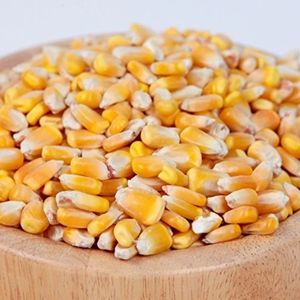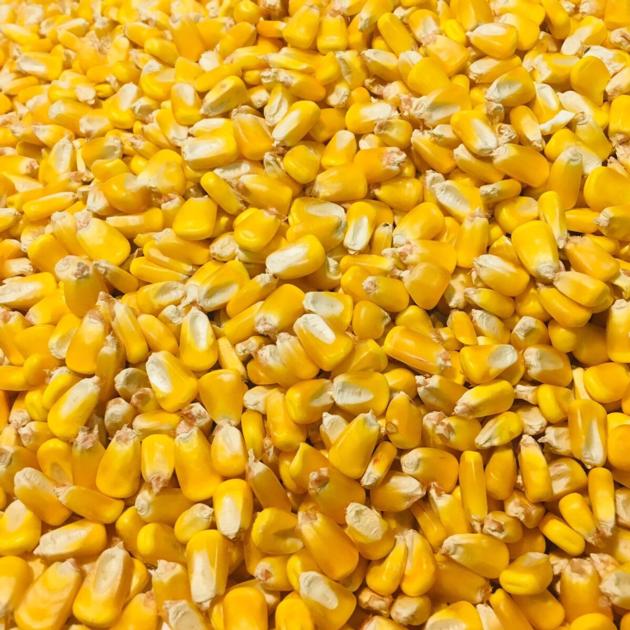Advertisements



Feed Corn
| Price: | Contact for latest price |
|---|---|
| Minimum Order: | 2,000 MT |
| Payment Terms: | SBLC, LC or DLC, MT103 |
| Port of Export: | EU, Brazil, Africa, |
Product Details
| Model No.: | Brand Name: |
|---|
| Certification: | |
|---|---|
| Specification: |
Proteins, % – 11
Humidity, % – max. 14 Ash, g/kg – 17 Foreign components – 1,0 |
Packaging & Delivery
| Packaging: | Big bag, loose / in bulk |
|---|---|
| Delivery/Lead Time: | Corn by truck within 5-10 working days |
| Production Capacity: | Over 500,000 MT per year |
Product Description
Feed corn, a staple in the agriculture industry, plays a crucial role in providing essential nutrition for livestock and poultry. This versatile crop has a rich historical significance and continues to be a vital component in animal feed formulations worldwide. From its cultivation and harvesting to processing and utilization, feed corn offers a wide range of benefits for both farmers and the livestock they raise. This article delves into the nutritional benefits, varieties, cultivation practices, economic importance, and future trends of feed corn, shedding light on its significance in the agricultural landscape.
Introduction to Feed Corn
When it comes to agriculture, feed corn plays a crucial role in feeding livestock. Whether it's for cattle, pigs, or poultry, this versatile crop serves as a staple in their diets.
Definition of Feed Corn
Feed corn, also known as field corn, is a type of corn primarily used for animal consumption rather than human consumption. It differs from sweet corn, which is what you might find at the dinner table.
Historical Significance of Feed Corn
Since ancient times, corn has been a vital crop for sustaining both humans and animals. Feed corn's ability to provide essential nutrients and energy has made it a cornerstone of livestock farming throughout history.
Nutritional Benefits of Feed Corn
Feed corn offers a range of essential nutrients that are beneficial for the health and growth of livestock.
Key Nutrients in Feed Corn
Feed corn is rich in carbohydrates, proteins, fiber, and various vitamins and minerals, making it a well-rounded source of nutrition for animals.
Health Benefits for Livestock
Livestock fed with corn-based diets show improved growth rates, energy levels, and overall health. The nutritional profile of feed corn contributes to the well-being of animals raised for meat, milk, and egg production.
Types of Feed Corn Varieties
Just like any other crop, feed corn comes in different varieties, each with its unique characteristics and purposes.
Common Varieties of Feed Corn
Common feed corn varieties include dent corn, flint corn, and flour corn, each with distinct kernel qualities that cater to specific livestock feeding requirements.
Specialty Varieties and Hybrids
In addition to traditional varieties, there are specialty feed corn hybrids developed to enhance yield, nutritional value, and disease resistance. These hybrids are a result of ongoing agricultural research and innovation.
Growing and Harvesting Feed Corn
Successfully cultivating and harvesting feed corn requires careful attention to agricultural practices and timing to ensure a bountiful harvest.
Cultivation Practices for Feed Corn
From soil preparation to planting and irrigation, proper cultivation practices play a crucial role in maximizing the yield and quality of feed corn crops.
Optimal Harvesting Techniques
Harvesting feed corn at the right stage of maturity and using efficient equipment are essential steps in ensuring a successful harvest. Timely harvesting preserves the nutritional value and quality of the corn for animal consumption.# Processing and Storage of Feed Corn
## Processing Methods for Feed Corn
When it comes to processing feed corn, there are a few popular methods to get it ready for your hungry livestock. From grinding to crushing, and even pelleting, there are various ways to make sure your corn is all set for munching.
## Best Practices for Corn Storage
Just like your favorite snacks need a cool, dry place to hang out, feed corn needs proper storage too. Keep those kernels safe from pests and moisture by storing them in a clean, well-ventilated area. Remember, happy corn means happy animals!
# Utilization of Feed Corn in Livestock and Poultry Feed
## Incorporating Feed Corn in Animal Diets
No one wants hangry animals on their hands! By incorporating feed corn into their diets, you're providing your livestock with a tasty and nutritious meal. Mix it with other feed ingredients for a balanced diet that will have your animals thanking you.
## Benefits of Feed Corn in Livestock Nutrition
Feed corn isn't just a filler – it's packed with essential nutrients that keep your livestock healthy and thriving. From carbohydrates for energy to fiber for digestion, corn plays a crucial role in ensuring your animals are in top-notch shape.
# Economic Importance of Feed Corn
## Role of Feed Corn in Agriculture Industry
Feed corn isn't just a farm favorite – it's a key player in the agriculture industry. From supporting livestock and poultry production to contributing to the overall economy, feed corn wears many hats and plays a vital role in keeping things running smoothly.
## Market Trends and Demand for Feed Corn
With the ever-growing demand for meat and dairy products, the need for feed corn is on the rise. Stay ahead of the game by keeping an eye on market trends and ensuring you have enough feed corn to keep your livestock happy and healthy.
# Future Trends and Innovations in the Feed Corn Industry
## Technological Advances in Feed Corn Production
As technology continues to evolve, so does feed corn production. Keep an eye out for the latest innovations, from precision farming techniques to advancements in harvesting equipment, that are making feed corn production more efficient and sustainable than ever.
## Sustainable Practices and Environmental Considerations
In a world where sustainability is key, the feed corn industry is taking steps to ensure its practices are eco-friendly. From conservation tillage to water management strategies, the future of feed corn is looking greener than ever before.In conclusion, feed corn remains a cornerstone of livestock nutrition, offering valuable nutrients and sustenance for farm animals. As advancements in technology and sustainable practices continue to drive innovation in the feed corn industry, the future holds promising opportunities for both producers and consumers. With its enduring importance and versatile applications, feed corn is likely to remain a key player in supporting the agricultural sector and meeting the nutritional needs of livestock for years to come.
FAQs
1. What makes feed corn different from other types of corn?
2. How is feed corn processed for use in livestock and poultry feed?
3. Are there specific nutritional benefits that feed corn provides to animals?
4. What are some emerging trends and innovations in the feed corn industry?
Contact Osben Export Import Broker for more information.


|
SUPPLIER PROFILE
|
|||
|---|---|---|---|
| Company: | Osben Export-Import Broker | ||
| City/State | Dùsseldorf, NRW | Country: |
Germany 
|
| Business Type: | Export/Import - Trading Company | Established: | NA |
| Member Since: | 2021 | Contact Person | 'Benson S. Osawe' |
SUPPLIER PROFILE
City/State/Country -
Dùsseldorf, NRW
Germany 

Business Type -
Export/Import - Trading Company
Established -
NA
Member Since -
2021
Contact Person -
'Benson S. Osawe'



